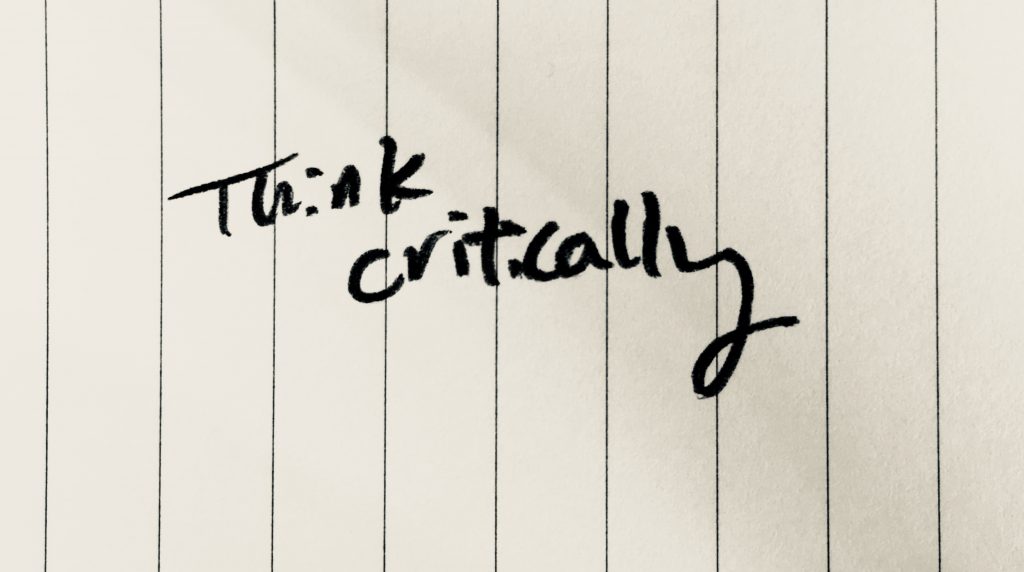Look back: National news brief April 8-14
Facebook congressional hearings, Nobel Prize scandal and Syrian bomb strikes

A note from the news editor
One question I want you to keep in mind for each week’s news brief is, “Are the things I know thus far, enough for me to make a sound and fair judgment?”
Different new outlets include information other outlets omit and vice versa. News needs to select the essence of events, but often those omissions or extra sentences are politically motivated.
I hope for each week, the takeaway is not only for you to be informed, but to question how and why facts are presented to you in certain ways. Are some news written in ways that are aimed to designate how you think and feel? That’s the reason why I include questions in my articles. We all form opinions, but it’s important that our opinions are not duplicates or regurgitations of what the media tells us. Keep an inquiring mind and remember that forming strong and solid judgments comes from knowing and questioning things from a broad spectrum of perspectives. Read, question, read and question more.
April 11: Mark Zuckerberg congressional testimony

- The Facebook and Cambridge Analytica scandal sparked a worldwide discussion about the priorities social media needs to sort out — privacy, regulation or revenue first?
- On Wednesday, began Mark Zuckerberg’s two-day journey of testifying before Congress. Each session lasted around five hours and each senator only had four minutes with the young social media mogul — leading to a lot of unfinished sentences, and Zuckerberg’s “My team and I will follow up” phrases.
- Senator Bill Nelson, the top Democrat on the Senate Commerce Committee said, “How in the world can you have 44 senators do a hearing that has a lot of substance when each senator only has four minutes?” Perhaps it was a cathartic experience for people who want to see Zuckerberg crushed, but not so much a conversation providing answers.
- Facebook’s Chief Operating Officer Sheryl Sandberg acknowledged concerns about Facebook’s advertisement-based monetary model but said the company would not change the model for now.
- There are though some takeaways. Zuckerberg said the company has been too optimistic with their tools, “In the first 10-12 years of the company, our primary responsibility is building tools — if we put those tool is people’s hands, that would empower them to do good things. What we’ve learned now is we need to take a proactive role and a broader perspective of responsibility. It’s not enough just to build tools; we need to make sure they are used for good. And that means we need to take a more active role in policing the ecosystem, watching out, and making sure all of the members who are using these tools in ways that are good and healthy.”
- Zuckerberg said that he would welcome regulation if, “they are the right regulation.”
- Senator Edward Markey asked Zuckerberg if he agrees there should be laws, such as “Online Privacy Bill of Rights” for kids 16 and under, to guarantee their data would not be reused for any purposes unless parents give explicit permissions to. Zuckerberg evaded the question, saying that he thinks there should be policies of protection but not necessarily laws.
- The question now is if we no longer want our data to be used for advertising purposes, could Facebook’s monetary model survive? On an interview for Today, Sandberg said with this business model there’s no opt-out for users who don’t want their data given to advertisers unless, she said, “that would be a paid product.”
April 13: Swedish Academy scandal

- The Nobel Prize community is under fire from recent scandals in the Swedish Academy that awards Nobel Prizes in literature.
- Ignoring all the nuance and details, the outcome of this scandal is certainly jarring to many, especially if you read New York Times’s headline “In Nobel Scandal, a Man Is Accused of Sexual Misconduct. A Woman Takes the Fall.” So what really happened?
- Last year, Swedish daily newspaper Dagens Nyheter (DN) revealed that 18 women accused Jean-Claude Arnault, prominent Swedish cultural figure and photographer, of sexual assault between 1996 and 2017.He was also accused of leaking Nobel Prize nominee names seven times.
- He’s tied to the Swedish Academy because the institution funds his cultural projects and his wife, poet Katarina Frostenson, is one of its 18 members.
- Sara Danius, the academy’s permanent secretary, hired a law firm to open an investigation to check whether there were any legal or monetary issues with the academy funding Arnault’s businesses.
- The investigation revealed Frostenson had improperly benefitted from her husband’s academy funded projects. Three male jury members quit the committee to protest against the academy’s decision to not expel Frostenson, Frostenson quit after that.
- Sara Danius also stepped down and said, “It was the wish of the academy that I should leave, I would have liked to continue.”
- This sparked off heated discussions about gender, patriarchy and power. Ebba Witt-Brattstrom, a professor of Nordic literature at the University of Helsinki, said Danius being forced to leave was a gender issue. “What they did was orchestrate a coup to get rid of Danius, because she’s too headstrong,” she said. “A headstrong woman is not what they are used to in the Swedish Academy.”
- Horace Engdahl, one of the members that quit in protest, proclaimed Danius as “the worst permanent secretary in the entire history of the Academy.”
- On Friday, #PussyBows were trending on Twitter, with women of all backgrounds wearing pussybow blouses, a Danius signature look, in support of the former Permanent Secretary. (Some men also tied their ties into a pussy bow.)
- As events unfold, it would be useful to keep this question in mind: is it fair that Frostenson should be penalized for participating and benefitting from the academy subsidized shady business with her husband, who also happens to be accused of multiple sexual harassments?
April 14: Syrian bomb strikes

- President Trump announced U.S. bomb strikes on Syria in an effort to destroy the Syrian government’s chemical weapons facilities and punish Syrian President Bashar al-Assad for murdering 43 Syrian civilians with chemical weapons.
- The U.S. has not been a fan of Assad. Back in 2011, former President Obama and his administration called for Assad’s removal. “The future of Syria must be determined by its people, but President Bashar al-Assad is standing in their way,” Obama said, “his calls for dialogue and reform have rung hollow while he is imprisoning, torturing and slaughtering his own people. For the sake of the Syrian people, the time has come for President Assad to step aside.”
- The States join forces with France and UK. The Wall Street Journal wrote the deal, “underscores an alignment between the U.S. and its European allies despite deep divisions over other issues.”
- Trump said in a press conference, “The purpose of our actions tonight, is to establish strong deterrent against the production, spread, and use of chemical weapons. ”
- Concerns raised whether the coalition would also possibly invite retaliation from Russia, Syria’s most powerful military partner. The strikes had bombed both Damascus and West of Homs.



























